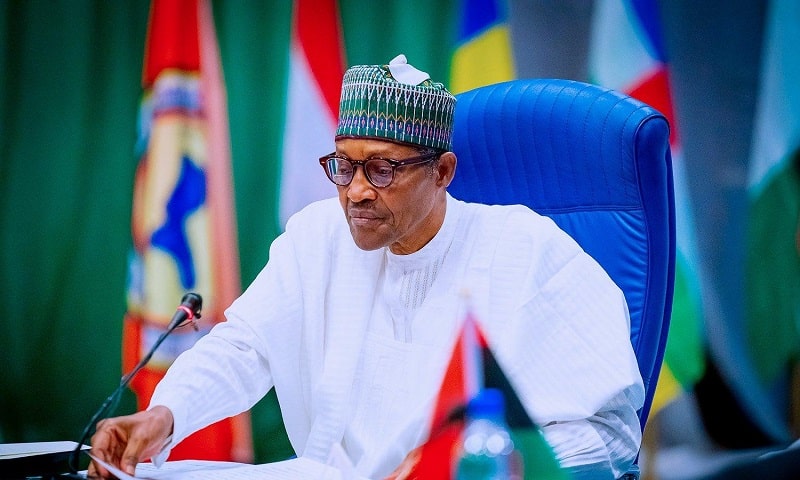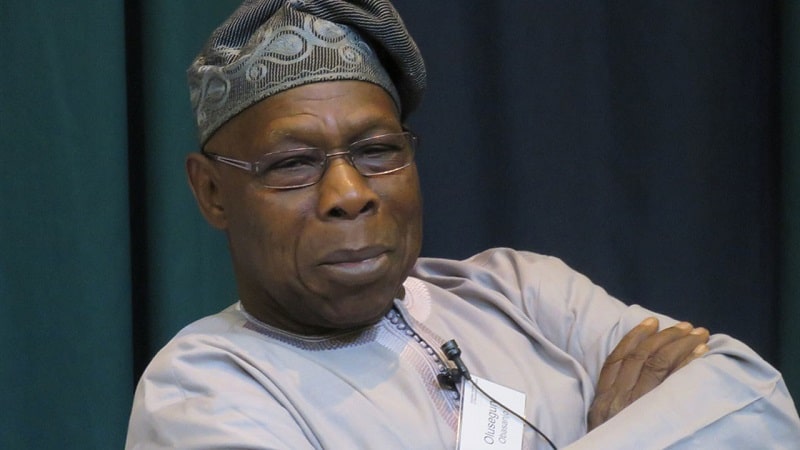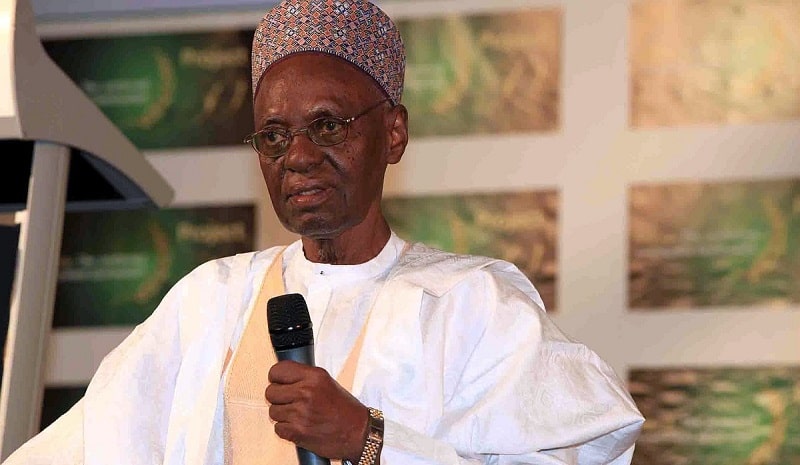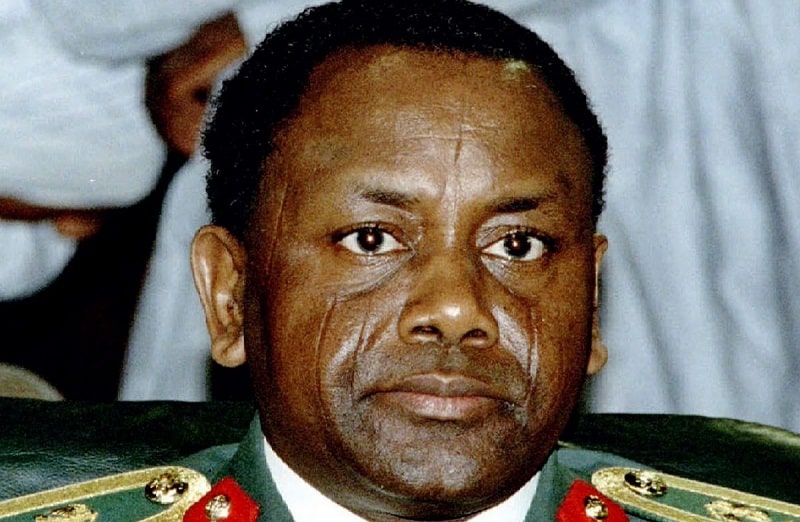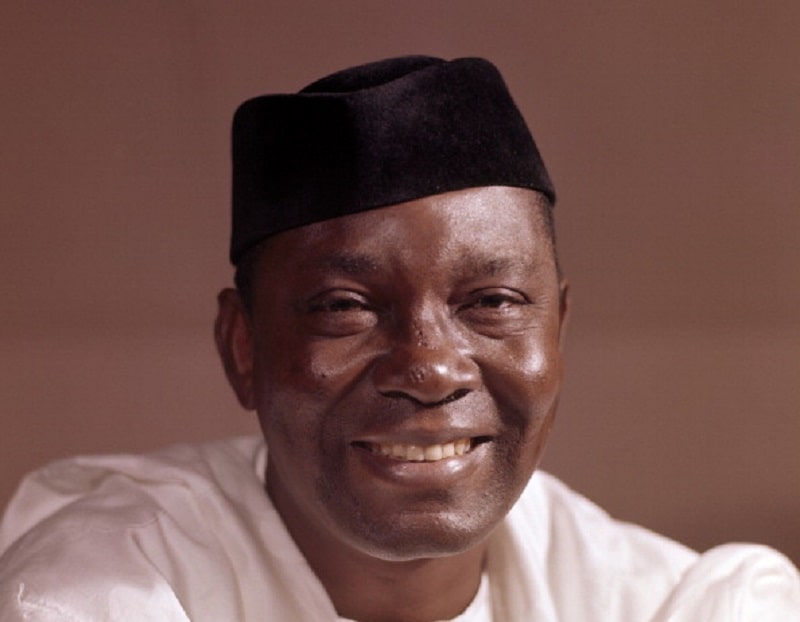
Nnamdi Azikiwe was the first President of Nigeria and served from 1963 to 1966. He was a prominent Nigerian statesman and nationalist who played a key role in Nigeria’s struggle for independence and the country’s subsequent development as a democratic nation.
| List | President’s Information |
|---|---|
| Name | Nnamdi Benjamin Azikiwe |
| Date of Birth | November 16, 1904 |
| Age | Died on May 11, 1996 (at the age of 91) |
| Died | May 11, 1996 |
| Ancestral Home | Zungeru, Niger State, Nigeria |
| Native Language | Igbo |
| School Attended | Howard University (USA), Lincoln University (USA), University of Pennsylvania (USA) |
| Career & Occupation | Journalist, Educator, Politician |
| Military Rank | N/A |
| Height | N/A |
| Known As | Zik of Africa |
| Citizenship | Nigerian |
| Residence | Onitsha, Anambra State, Nigeria |
| Religion | Christianity |
| Wife’s Name | Flora Azikiwe |
| Children’s Name | Nwachukwu, Chukwuemeka, Ifeoma, and others |
| Assumed Presidential Office | October 1, 1963 |
| Left Presidential Office | January 16, 1966 |
| Political Party | National Council of Nigeria and the Cameroons (NCNC) |
Nnamdi Azikiwe’s Early Life and Career
Nnamdi Azikiwe was born on November 16, 1904, in Zungeru, a town in present-day Niger State, Nigeria. He was the son of a clerk and attended various schools in Nigeria and the United States before studying at Lincoln University in Pennsylvania, where he earned a bachelor’s degree in political science.
After returning to Nigeria, Azikiwe worked as a journalist and founded several newspapers, including the West African Pilot and the Nigerian Spokesman. He used his newspapers as a platform to advocate for Nigerian independence and social justice and became a leading voice in the country’s nationalist movement.
Nnamdi Azikiwe’s Political Career and Achievements
Upon returning to Nigeria, Azikiwe worked in journalism where he usied his writing as a powerful tool to agitate for change. His newspaper, West African Pilot, became a platform for addressing political and social issues, channeling the growing discontent against British colonial rule. This marked the beginning of his transformative political career.
Azikiwe’s political prowess led him to champion the cause of nationalism and anti-colonialism. He co-founded the National Council of Nigeria and the Cameroons (NCNC), a platform that united diverse ethnic groups in the quest for independence. His relentless efforts contributed significantly to Nigeria’s constitutional evolution, leading to the country’s attainment of self-governance in 1960.
Nnamdi Azikiwe’s Presidential Years and Legacy
Nnamdi Azikiwe’s dedication to Nigeria’s growth led him to become the country’s first President upon its transition to a republic in 1963. As President, Azikiwe sought to forge a united nation out of the ethnic and regional diversities that comprised Nigeria. His visionary leadership laid the foundation for a unified identity while preserving cultural uniqueness.
He envisioned a Nigeria where education and economic development were paramount. His policies supported education and industrialization, emphasizing self-reliance and the liberation of the masses from poverty.
Azikiwe’s Overthrow and Assassination
The optimism of Azikiwe’s presidency was cut short by the political upheaval that gripped Nigeria. The first republic was plagued by instability, culminating in a series of military coups. Azikiwe’s presidency ended in 1966 with a military intervention, as political turmoil escalated.
The tragic assassination of Azikiwe in 1996 marked a somber moment in Nigeria’s history. His passing left a void in the country’s leadership and a loss felt deeply by those who admired his principles of justice and unity.
Nnamdi Azikiwe’s Legacy
Nnamdi Azikiwe’s legacy endures as a source of inspiration for Nigeria and beyond. His commitment to education, nationalism, and unity serves as a guiding light for leaders and citizens alike. He believed in the potential of Nigeria to rise above its challenges and become a beacon of progress in Africa.
Azikiwe’s name graces numerous institutions, streets, and landmarks, reminding future generations of his contributions. His advocacy for education, freedom, and the liberation of the downtrodden remains relevant as Nigeria continues its journey toward realizing its full potential.
Additional Facts
- Before becoming President, Azikiwe served as the Governor-General of Nigeria from 1960 to 1963.
- He was popularly known as “Zik of Africa” due to his influence and contributions to the African independence movement.
- Azikiwe was instrumental in establishing the University of Nigeria, Nsukka, in 1960, the first indigenous university in Nigeria.
- He wrote several books, including “Renascent Africa” and “My Odyssey,” which detail his thoughts on African nationalism and his personal experiences.
- Azikiwe was fluent in multiple languages, including Igbo, Hausa, Yoruba, and English, which aided his political and diplomatic efforts.
- After the military coup of 1966, Azikiwe remained active in politics and later became a senator in the Nigerian Second Republic.
President Nnamdi Azikiwe FAQs
Related: Major General Johnson Aguiyi Ironsi (Former Head of State)
